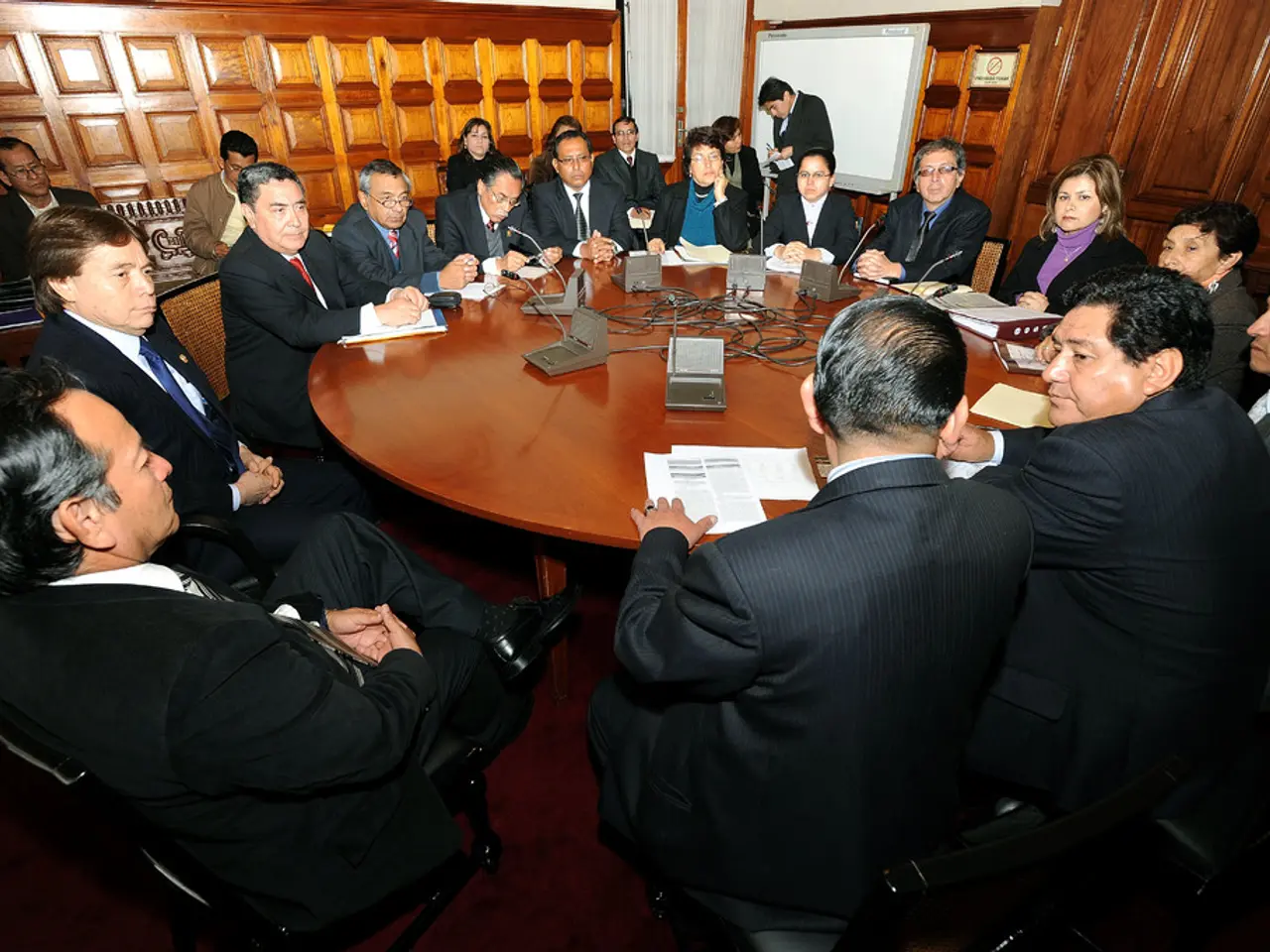Armin Laschet praises Trump's diplomatic efforts while criticizing Europe's strategies
In an interview with the Tagesspiegel, Armin Laschet, the chairman of the Foreign Affairs Committee in the German Bundestag, expressed optimism about the recent diplomatic momentum in the negotiations between US President Donald Trump and Russia's President Vladimir Putin.
The talks, which took place in Alaska, primarily focused on seeking a ceasefire to end the ongoing war in Ukraine. Trump expressed a desire to see an end to the conflict and discussed pushing for a second meeting involving Ukrainian President Volodymyr Zelenskyy to further peace efforts.
Laschet acknowledged the importance of these negotiations, stating that they could lead to significant improvements in global security. He also emphasised the need for continued dialogue between the US and Russia to address pressing international issues.
The German politician's comments were published in the Monday edition of the Tagesspiegel. Laschet called for a constructive approach from both leaders to ensure a peaceful resolution to ongoing conflicts. His call for cooperation between the US and Russia was met with approval from some German politicians.
However, Laschet's stance on the negotiations has sparked debate within the German political landscape. Some are concerned about potential Ukrainian territorial concessions, as Zelenskyy was excluded from the meeting.
Despite the ongoing debate, Laschet urged both the US and Russia to work towards a more cooperative relationship for the benefit of the global community. He suggested that the negotiations could potentially pave the way for a more stable international order.
Laschet's positive comments towards the negotiations were not limited to the Ukrainian conflict. He expressed that it's good there's been some momentum in diplomacy and that the negotiations between Trump and Putin could lead to significant improvements in global security.
The focus of the diplomatic negotiations between Trump and Putin in Alaska was primarily on seeking a ceasefire to end the ongoing war in Ukraine. Trump expressed a desire to see an end to the conflict and discussed pushing for a second meeting involving Ukrainian President Volodymyr Zelenskyy to further peace efforts. The talks were also part of broader diplomatic efforts to resolve Europe's bloodiest conflict since World War II, with emphasis on whether Russia would commit to a ceasefire or face harsher sanctions[1][2][3].
Additional context includes concerns raised by Kyiv and European capitals about a possible deal between Trump and Putin, especially since Zelenskyy was excluded from the meeting, fueling fears about potential Ukrainian territorial concessions[3]. The summit represented high stakes for the transatlantic alliance amidst the complex security situation in Europe[3].
- Armin Laschet, expressing optimism about the diplomatic momentum between US President Donald Trump and Russia's President Vladimir Putin, indicated that the talks' potential outcomes could lead to significant policy-and-legislation changes in war-and-conflicts such as the one in Ukraine.
- The German politician's call for constructive dialogue between the US and Russia in resolving conflicts, such as that in Ukraine, suggests that his policy-and-legislation stance is influenced by general-news events, particularly politics involving Europe.







